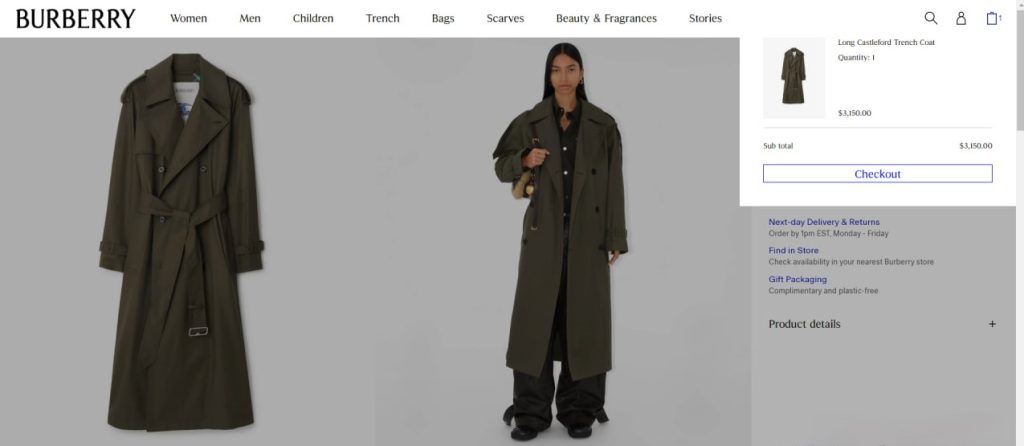Generating high-quality leads is crucial for the success of any business, but not all leads are created equal, especially in B2B marketing. Leads are only as good as their potential to be converted into loyal, paying customers. That’s why marketers need to identify and prioritize MQLs. But what is Marketing Qualified Lead, and why is it important?
We’ll discuss what is MQL in marketing and its significance as part of your sales and business strategy. We’ll share some valuable tips and tricks on how to identify and qualify these leads while evaluating their pros and cons.
Let’s discover the process of transitioning MQLs to Sales Qualified Leads (SQLs) for optimal and sustained growth!
What Is Marketing Qualified Lead?
A Marketing Qualified Lead (MQL) is a prospective customer who has shown interest in what your brand offers through marketing efforts. Even though they haven’t yet leaped a sales conversation, they are promising leads. They might become more loyal customers than other types of leads. But how do you distinguish them?
Marketing efforts can bring a substantial amount of various leads daily, but the lead’s behavior and online actions prompt marketers to classify them as an MQL. Often, they have intentionally engaged with your brand or made some sort of active action to pursue what you have to offer. Examples of such actions may include:
- Clicking on an ad to find your site.
- Submitting an email address or subscribing to a newsletter or mailing list.
- Filling out online forms.
- Downloading trial software or free ebooks.
- Using software demos.
- Adding items to the shopping cart.
- Repeating site visits or spending more time on them.
Although these represent the most common actions, the best way to determine a qualified lead depends on other data, such as lead scoring, analytics, and demographics.

Why is MQL important?
MQLs play a pivotal role in the effectiveness of the sales funnel, bringing about numerous benefits that drive business success and growth. Here are the reasons why.
Streamlined sales process
MQLs make your sales process more efficient and smoother by pinpointing prospects already engaged with your brand and interested in your offer. This also benefits your sales team, as they spend less time on leads that might not go anywhere. By focusing their energy on those likely to converse, or MQLs, understanding and identifying them makes everything more efficient.
Increased conversion rates
Knowing who your MQLs are allows you to create an informed, personalized strategy to boost conversion rates. Even though they’ve already interacted with your brand, they need some engagement to turn them into loyal, paying customers. You can ensure that your sales efforts are more likely to pay off with a targeted approach.
Better alignment between marketing and sales
Collaboration is key to business growth. MQLs help your marketing and sales teams work better together. When both departments join forces to nurture and move leads through the sales funnel, it ensures optimal performance. Marketing teams pass high-quality leads, while sales teams focus on closing deals with those most likely to buy.
More accurate forecasting
MQLs provide an array of possible clients. They help forecast sales performance and growth more accurately, allowing smart decision-making and better allocation of resources to meet your business goals.
Cost efficiency
Instead of attracting new customers, which can be expensive and time-consuming, allocate your resources to MQLs. This approach can save you precious time and increase your ROI (Return On Investment) in marketing efforts while enhancing your overall revenue.
How Do You Identify and Qualify an MQL?
One of the easiest ways to identify MQLs is to focus on lead scoring techniques and qualification criteria. However, it’s important to define your business’s needs beforehand, as not all leads are the same, even within the same industry.
Defining specific MQLs requires reviewing your other leads’ and buyers’ habits and journeys. This includes investigating demographic data like business or organization, location, company size, job title, and online behaviors. These elements are often helpful indicators, so it’s important to analyze and compare them to other leads who’ve successfully become customers.

Pros and Cons
Even though MQLs offer great opportunities to significantly enhance your sales process, there are also several drawbacks that you must know. First, MQLs have a higher conversion rate as they’ve shown interest in your brand.
The sales process also becomes much smoother when a lead is interested. It allows the marketing team to confidently hand off quality leads to the sales team, who then focus on converting them.
In addition, prioritizing MQLs ensures better resource allocation. Targeting these leads allows you to make smart decisions regarding your marketing budget and resources, ensuring you make the most of any situation. Most importantly, this targeted approach maximizes your ROI.
On the contrary, one potential issue when working with MQLs you might encounter is misclassification. If your criteria and lead scoring processes are slightly off, leads may be incorrectly identified as MQLs.
Another concern is the potential overemphasis on quality versus quantity. Even though generating high volumes of leads is beneficial, you must ensure that these leads are truly qualified and worth your time.
MQL to SQL
The main difference between MQLs and SQLs (Sales Qualified Leads) is the prospect’s perceived willingness to buy from you. While MQLs are curious, SQLs are already in the sales funnel, one step away from making a purchase. But how do you transition MQLs into SQLs?
Let’s break it down. The best way to move MQLs down the funnel is to ensure you reach out with the right approach at the right time.
When leads demonstrate initial interest through various actions like downloading content or signing up for a webinar, they’re classified as MQLs. Once the marketing team has peaked their interest, they pass them on to the sales team.
The sales teams evaluate these leads even further, considering factors like customer profile, need, budget, timeline, and authority. If a lead meets these criteria, they’re classified as an SQL, ready for a personalized sales approach.
At that stage, SQLs are engaged with tailored messaging that addresses their specific needs and concerts. Finally, once you establish trust and address their needs, the sales team works to close a deal, converting SQLs into loyal, paying customers.

Conclusion
So, what is Marketing Qualified Lead? It is more than just an ordinary potential prospect—it is an individual who is genuinely considering your brand. By identifying MQLs, you ensure streamlined sales processes, enhanced conversion rates, and significantly improved ROI.
Now that you know why they’re so important, embracing their power can elevate your marketing efforts. Consider some of the tips we’ve mentioned above to get started on identifying and converting more qualified leads.
However, remember that even though MQLs are invaluable for your business, they’re just the beginning. You must focus on and nurture these leads through the sales funnel to achieve optimal success and business growth. Transitioning MQLs into SQLs is all about seamless collaboration between marketing and sales teams.

Dimitar is a seasoned marketing specialist and the visionary behind CLICKVISION. With over 10 years in digital marketing, he excels in crafting marketing strategies that boost rankings, which in return increase leads, conversions, sales, profits, and ROI.
